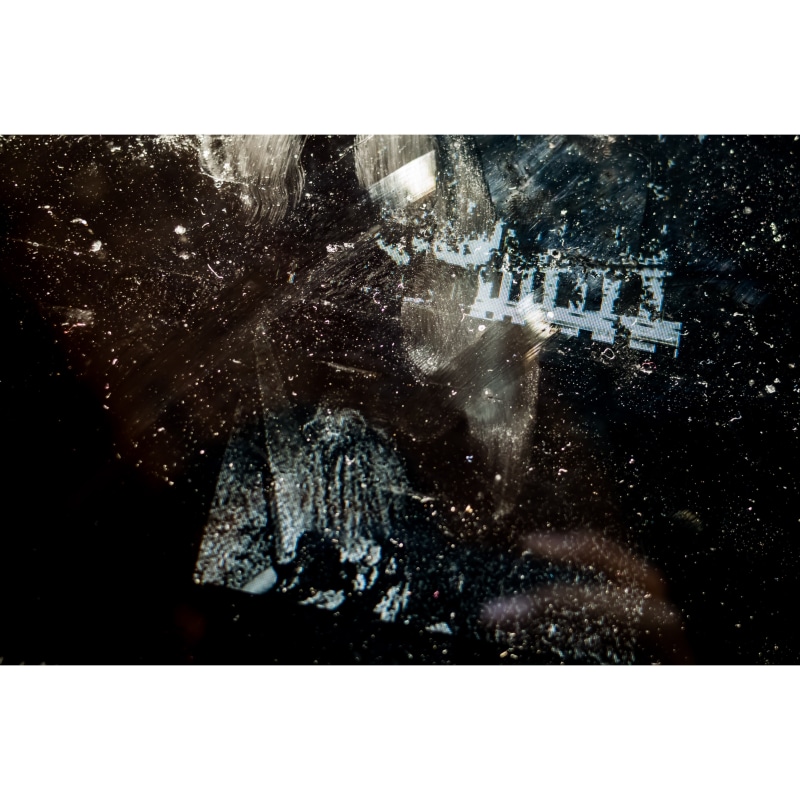In Roland Barthes' "Camera Lucida," the discourse on the "Winter Garden Photograph" occupies a significant portion of the text. This photograph, featuring Barthes' mother as a young child, worn at the edges and faded to a yellowish hue, captures her at the age of five alongside her brother, posing in childlike innocence. For Barthes, who had recently lost his mother at the time of writing, this image served as a perfect representation of the essence of his mother's life, situated at the center of his "labyrinth of images," the "correct image" through which he could truly reclaim and mourn his mother.
In 2016, Sean Wang, while on a residency in the United States and missing his family, opened his hard drive in search of his own "Winter Garden Photograph" — a series of pictures from 2004, marking the last time his entire family had vacationed together. He had captured the entire journey with a 2-megapixel digital camera. To his astonishment, these photos, in stark contrast to the faded, curled edges described by Barthes, appeared brand new, with his mother, who had not yet passed away, looking as lively as ever. This surreal experience created a rift between visual experience and memory, transforming what should have been an act of remembrance into a present moment, thereby fracturing linear time experience. The act of viewing seemed to fall into an eternal loop of the Droste effect [1], endlessly plunging beneath the surface of the photo.
To return to the surface of the photograph, making these digital images appear aged like memories, Wang photographed his computer screen. The dust, fingerprints, and impressions of keyboard buttons, along with the reflection of the screen's plastic surface, seemingly endowed these pixels with a tangible materiality. In the first exhibition room's corner, we observe a playful installation attempting to capture family photos from the electronic screen within plastic albums, momentarily bestowing upon these images a fragile materiality through the reflection of the plastic. At the back of the exhibition space, these photos are spread out on the floor, reminiscent of James Elkins' metaphor in "What Photography Is," likening photographs to an ice black lake, with viewing them akin to looking into the lake's interior. At this level, the inherently transparent surface of photographs becomes visible, and the content of the photos escapes our symbolic frameworks and representational systems, becoming unreadable. The dust, textures, and the gaps between layered photos resemble cracks leading to the lake's depths, pointing towards desires, familial bonds, and personal memories. As we gaze into the depths, our vision ultimately vanishes into the darkness before reaching the object of our sight.
In today's world, where digital images overwhelmingly dominate our lives, the rapid iteration of novel digital technologies — from hundred-megapixel cameras to spatial videos — continuously crafts visual spectacles for us, distancing us further from the fragile surface of images as memories fail to fade and the past remains ever new. This is the "slow cancellation of the future" Mark Fisher warned against, trapping us in a postmodern stalemate. Wang's work seeks to capture the genuine sensations reflected from dirty paper and disintegrating albums, thus breaking free from the prison of a past constructed of zeroes and ones. Even if this attempt is faint, it still serves as a reminder to turn off our screens and gaze upon the ice black lake in our hand.
Note:
[1] Roland Barthes ,"Camera Lucida". Taiwan Photography Studio, 1997
[2] The Droste effect: It is a visual form of recursion, where a part of the image contains a smaller version of the entire image, creating an infinite loop.
[3] James Elkins, “What Photography is”. New York: Routledge, 2011
[4] Mark Fisher,“Ghosts in My Life: About Depression, Phantology, and the Lost Future”. New York: Zer0 Books, 2014
For more information about our Unbounded Project, you can visit:
If you have any questions about the Unbounded Project , please contact
THREE SHADOWS XIAMEN PHOTOGRAPHY ART CENTRE(EXHIBITION): Xiao Ruiyun
E-mail:xiaorae@threeshadows.cn
